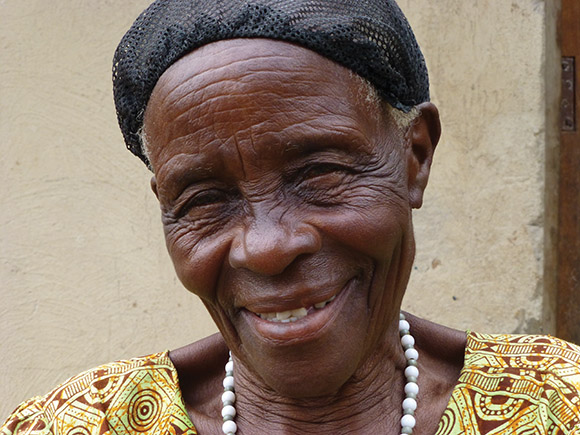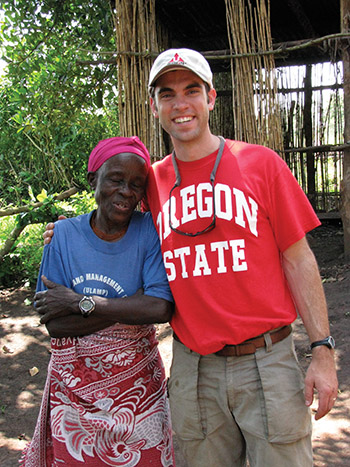 |
 |
| current issue |  |
past issues |  |
send a letter/news |  |
address update |  |
advertise |  |
about us |  |
alumni home |
In the Balance
Page 5 of 5
Previous | First
When Hartter says "collaborator," he's as likely to be talking about a local Ugandan as an American scholar. And if he says it with suspiciously shiny eyes, he's likely to be talking about a woman whose empaako is Adyiri, or "kindly woman." She welcomed his team to Rwengobe in 2005 and has been their adoptive grandmother ever since. "Every time we talk, we laugh, and most of the time when I tell people about Adyiri, I cry," Hartter says. Then he launches into one of his blocks of interconnected enthusiasms: "Adyiri is so gracious to anybody who comes to visit. She's dirt poor but just so bubbly, with a lot of energy. My field assistants and I are constantly looking in on her. We've planted trees for her, rigged mosquito nets, brought her a new bed and mattress, and set up sturdy boxes for food because she has a problem with rats. Every year she tells us she's 79 years old. She doesn't know how old she is, which is not uncommon in Uganda. She can barely see. She tells me every year, 'If I'm not here the next time you come back, just come visit my grave.'"
Adyiri stars in many of the photos that Hartter displays in his office. Photography has proved such a great barrier-breaker in the villages—where some people had never before seen their own faces—that he now totes a portable printer. After interviews, he offers to take a family portrait. Though people were skeptical at first, now they're likely to gather their relatives and dress up for the occasion. At the end of a field season, the team spends days handing out photos. Despite the daily challenges of life in Kibale, Hartter sees many reasons for hope. Not only have the local people begun trying to change their planting schedules in response to weather data, but they've also begun moving some crops to limit raids by animals. And although the park's fuelwood program failed to limit deforestation on the border, Hartter sees it as the start of what he hopes will be a series of innovations using local ideas to improve local conditions. Ultimately, Hartter hopes his research will find ways to open communication between the people of Kibale and national policy makers. Too much policy is made in offices far from the people it affects, he says. Relationships are made up close, in villages. They're sustained by exchanges of help and information, and by the magic that happens when, at the same moment on any random day, a young professor in Durham and an ageless village woman in Uganda sit looking at the same photos, and remembering. ~ T.D. Thornton '90 is a Boston-based writer. He is the author of Not by a Long Shot: A Season at a Hard-Luck Horse Track. Interviews by Jane Harrigan contributed to this story. |
blog comments powered by Disqus



